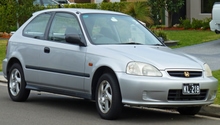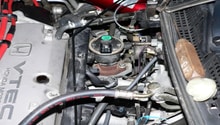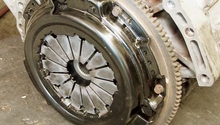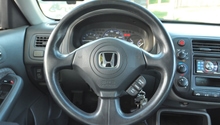Honda Civic: Why Does My Steering Wheel Vibrate on the Highway?
Is your steering wheel shaking or vibrating at high speeds? There are several problems that can lead to the "shakes," but this article will help you find the root cause.
This article applies to the Honda Civic (1992-2000).
Steering wheel vibrations or shakes not only can cause unsettling feelings at high speed, but can also be the result of a number of problems. Whether it be a suspension component failing, tires that are worn (or improperly inflated), or simple alignment issues, tracking down the cause of your specific problem is a bit of a process. Thankfully, this article will help you diagnose and fix the problem. So keep reading, and this article will guide you through the process.

Materials Needed
- Air compressor
- Hydraulic jack and jack stands
- Tire pressure gauge
Step 1 – Check your tires
Improperly inflated tires can cause vibrations.
The easiest and quickest thing you should check first is your tire pressure. Improperly inflated tires can cause vibrations, especially at higher speeds. Make sure that your tires are not under or over-inflated per manufacturer's specifications. Also, check your tread depth, and look for cracks in the tires or any other visible damage. If you find damage or the tires are excessively worn, you will need to replace them before you experience a catastrophic failure.
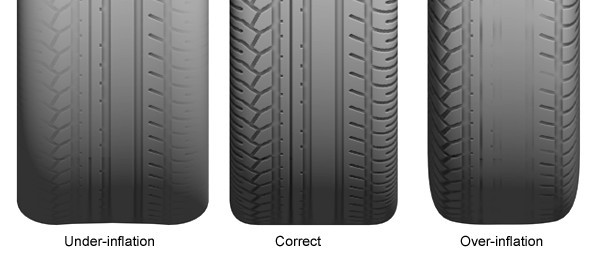
If your tire pressures are within manufacturer's specs and the tires are in good shape, move on to Step 2.
Related Articles
- How to Check Your Tire Pressure - Honda-Tech.com
- How to Check Your Tire Tread - Honda-Tech.com
Step 2 – Check your wheels
A bent or damaged wheel can cause vibrations in steering.
While you are inspecting your tires, go ahead and take a good look at your wheels as well. Run your hand along the outside of each wheel where the tires are mounted, and look for any bends or dents. These can be caused from hitting a pothole at a high speed or running into a curb. Even the smallest dent or bend can cause vibrations, and lead to tire damage. If you have a damaged wheel, a shop may be able to fix it or you might just have to replace it. It's also a good idea to ensure your tires are properly balanced on the wheels, which can be easily checked at an auto shop or dealership as well.
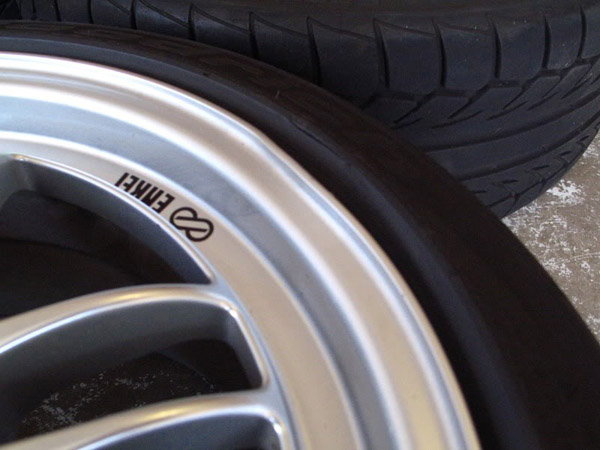
If your wheels are in good shape, move on to Step 3.
Step 3 – Check the alignment
A suspension that is out of alignment can cause all sorts of problems.
If it has been a while since you have gotten a proper alignment or you frequently drive on rough roads, now might be the time to have it done. Besides the normal "pulling" that is a sure sign of alignment issues, a suspension that is out of spec can lead to uneven or excessive tire wear, causing vibrations or shakes. This is a job you can do yourself with a little patience, or simply take your car to an auto shop and have it done for $60 to $90.

If your alignment is within spec, move on to Step 4.
(Related Article: How to Align Your Tires - Honda-Tech.com)
Step 4 – Check the suspension components
A number of bad suspension components can be the root of your problem.
Worn suspension bushings, tie rods, or even bad axles can cause vibrations in the steering wheel. Here's how to diagnose the problem along with the costs to fix it yourself:
- Bad bushings can usually be found by sound. Push down on the car's suspension and look for the source of any noises it may cause. Control arm bushings run anywhere from $50 to $300.
- To check the tie rod ends, lift the car up and place it on jack stands. Then, turn each of the front wheels from side to side and feel for any "play." This is a clear indication that you have a bad tie rod end. These are less expensive, ranging between $25 and $150 each.
- Turn the wheels one by one, and if you hear a clicking noise, this may indicate a bad axle. A pair of axles or complete axle kits start at $150 and can run all the way up to $1,500 or more, depending on if you want performance axles.
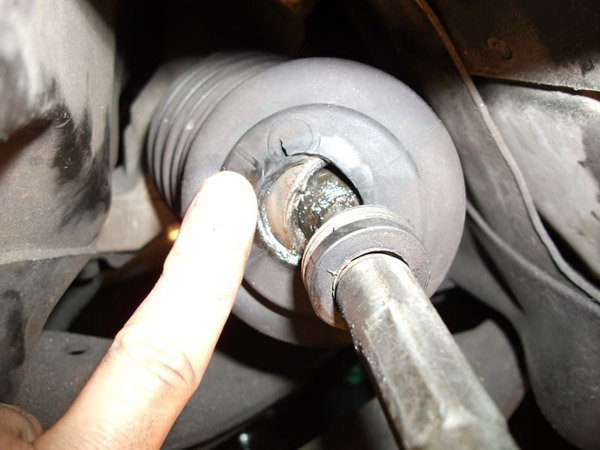
Related Article
- How to Replace Tie Rod Ends - Honda-Tech.com
- How to Replace Your Axle - Honda-Tech.com
Related Discussions
- Steering Wheel Shakes at High Speed - Honda-Tech.com
- Civic Steering Wheel Shakes at 70-75 mph - Honda-Tech.com
- Steering Wheel Vibration Around 50-55 mph - Honda-Tech.com

